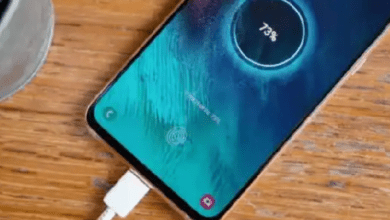Bitcoin Mining: Everything You Need to Know

Bitcoin mining plays a crucial role in the functioning of the network and the creation of new bitcoins.
Whether you’re a seasoned crypto enthusiast or a newcomer, understanding the concept of Bitcoin mining is essential.
In this article we will guide you through the fundamentals of Bitcoin mining, its significance, and how it operates.
What is Bitcoin Mining?
Bitcoin mining is the process by which new bitcoins are created and added to the circulating supply.
It also serves as the mechanism for verifying and recording transactions on the blockchain.
Miners use powerful computers to solve complex mathematical puzzles, and the first one to solve the puzzle gets the right to add the next block of transactions to the blockchain.
As a reward for their efforts, miners receive newly minted bitcoins and transaction fees.
How Does Bitcoin Mining Work?
Bitcoin mining involves a decentralized network of miners competing to solve mathematical problems. These problems become progressively harder as more miners join the network.
Miners use specialized hardware known as ASICs (Application-Specific Integrated Circuits) to perform the complex calculations required to solve the puzzle.
Once a miner successfully solves the puzzle, they broadcast the solution to the network, and other nodes verify it before the new block is added to the blockchain.
Energy Consumption and Environmental Concerns
Bitcoin mining requires a significant amount of computational power, leading to concerns about its environmental impact due to high energy consumption.
While miners are incentivized to use cheaper and greener energy sources, the energy issue remains a topic of debate within the crypto community.
Efforts are being made to find more energy-efficient consensus mechanisms, but it’s important to consider the environmental aspect of mining.
Mining Pools
Mining has become increasingly competitive, making it difficult for individual miners to compete effectively. To address this, mining pools have emerged.
Mining pools are groups of miners who combine their computational power to increase their chances of successfully mining a block.
When a pool successfully mines a block, the rewards are distributed among the members based on their contribution.
FAQs
Can I mine Bitcoin on my personal computer?
No, Bitcoin mining on a personal computer is no longer feasible. The computational power required to mine efficiently far exceeds what a typical computer can provide. Miners today use specialized hardware (ASICs) designed specifically for mining.
How much can I earn from Bitcoin mining?
The earning potential from Bitcoin mining depends on factors like the current difficulty level, the price of Bitcoin, and the cost of electricity. While it’s possible to earn bitcoins and transaction fees, mining has become highly competitive, so profits can vary.
Is Bitcoin mining legal?
Yes, Bitcoin mining is legal in most countries. However, it’s essential to be aware of any regulations or restrictions related to cryptocurrency mining in your jurisdiction.
What happens when all bitcoins are mined?
There is a fixed supply of 21 million bitcoins, and once all of them are mined, miners will no longer receive block rewards. Instead, they will rely solely on transaction fees for their earnings, which are expected to sustain the mining network.
Also Read: 12 Mobile App UI/UX Design Trends for 2024 | Design Studio





